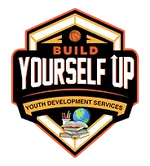
Build Yourself Up Academy
Slogan: Educating the Whole Child—With Care, Joy & Purpose.
What “Building the Whole Child” Means at Build Yourself Up Academy
At Build Yourself Up Academy, we believe that education in the early years should nurture every part of a child — mind, body, heart.
Our goal isn’t just kindergarten readiness; it’s life readiness.
To us, building the whole child means shaping confident, curious, and compassionate young learners who are strong socially, emotionally, physically, and intellectually.
We don’t just teach children what to know — we guide them in who they are and how to grow.
The Four Pillars of Whole-Child Development
Each pillar represents a vital piece of what we “build” every day — and how we integrate them into our combined curriculum.
1. Cognitive Growth – Building Curious Minds
- Our classrooms are structured around active learning — children explore math, literacy, and early science through hands-on experiences and play.
- We use project-based and thematic units to connect academic skills with real-world discovery.
- Teachers encourage children to ask questions, experiment, and think critically rather than memorize answers.
- Every activity is intentionally designed to spark curiosity and problem-solving, helping each child see themselves as a capable learner.
We shape curious thinkers ready to explore the world.
2. Social & Emotional Growth – Building Confident Hearts
- We teach emotional awareness through daily check-ins, stories, and role-play.
- Our staff models empathy, patience, and teamwork — so children learn how to treat others with kindness.
- We introduce basic conflict-resolution and self-regulation strategies appropriate for preschoolers.
- Children learn to express their feelings, listen to others, and celebrate both differences and common ground.
We build children who care about themselves and others.
3. Physical Growth – Building Strong Bodies
- Every day includes movement and play — from our indoor playground to outdoor adventures.
- Children develop coordination, balance, and confidence through sports, dance, yoga, and free play.
- We teach healthy habits — stretching, hydration, nutrition awareness — in age-appropriate ways.
- Our physical activities are inclusive and focused on joy, not competition.
We build confidence through movement, one jump, run, and stretch at a time.
4. Creative & Character Growth – Building Imaginative Spirits
- Our program celebrates art, music, storytelling, and dramatic play as essential forms of learning.
- We foster imagination and creativity as tools for self-expression and innovation.
- Every child is encouraged to try, make mistakes, and grow from them.
- Through creative outlets, children build resilience, pride, and a lifelong love of discovery.
We build imagination, confidence, and character through creativity.



BYU Academy “Whole-Child Curriculum” Model
We call it our Combined Curriculum — blending the best of early-learning philosophies to meet every child where they are.
| Approach | What We Take From It | How We Integrate It |
|---|---|---|
| Montessori | Independence, choice, sensory learning | Self-directed centers and leadership tasks |
| Reggio Emilia | Creativity, collaboration, environment as “third teacher” | Classroom design encourages exploration and community projects |
| Creative Curriculum / HighScope | Structured, evidence-based academic foundations | Literacy, math, and science experiences aligned with NJ preschool standards |
| Social-Emotional Learning (SEL) | Emotional intelligence, empathy, and family connection | Morning meetings, reflection circles, and feelings vocabulary |
| Play Based | Confidence through active play | Exploration. Updated: Children engage in open-ended, play-based movement experiences that encourage curiosity and exploration. From obstacle adventures to sensory pathways and dance, we use play as a foundation for building coordination, focus, and joy in movement — helping children discover what their bodies can do through curiosity, creativity, and fun. |
This combined approach allows us to build each domain every day — rather than isolating learning into one subject or style.
Area | What Most Preschools Do | What BYU Academy Does Differently
| Area | What Most Preschools Do | What BYU Academy Does Differently |
|---|---|---|
| Curriculum | Follows a single method (e.g. Montessori or Creative Curriculum) | Combines multiple proven approaches into a cohesive “whole-child” system |
| Physical Development | Recess or gym 1–2 times per week | Daily active play through an indoor playground, movement breaks, and fitness-based learning |
| Social-Emotional Skills | Implicitly taught through interaction | Explicitly taught with structured SEL lessons and teacher modeling |
| Creativity | Art as a side activity | Art, music, and imagination are central to daily lessons |
| Character & Confidence | Mentioned, but not measured | Embedded through positive affirmations, “BYU Confidence Moments,” and team projects |
| Parent Involvement | Occasional updates or conferences | Weekly progress snapshots, family events, and parent workshops on whole-child growth |
| Assessment | Academic milestones only | Balanced “whole-child” progress portfolios with social, emotional, and physical benchmarks |
How to Explain It to Parents (Website / Tour / Conversation Script)
“When we say Building the Whole Child, we mean that our teachers are intentional about every part of a child’s development.
We teach academics — letters, numbers, science — but we also teach how to share, how to move, how to express feelings, how to be confident and kind.
Every day is an opportunity to strengthen a new part of who they are — and by doing that consistently, one day at a time, we’re not just preparing them for kindergarten… we’re preparing them for life.”
Why It Matters
Research shows that children who experience whole-child education:
- Enter kindergarten with stronger emotional regulation skills,
- Show higher levels of curiosity and motivation,
- Are more confident problem-solvers,
- Form healthier social relationships, and
- Maintain long-term academic and personal success.
By focusing on who they are becoming, not just what they can do, Build Yourself Up Academy gives children a foundation that lasts far beyond preschool.
